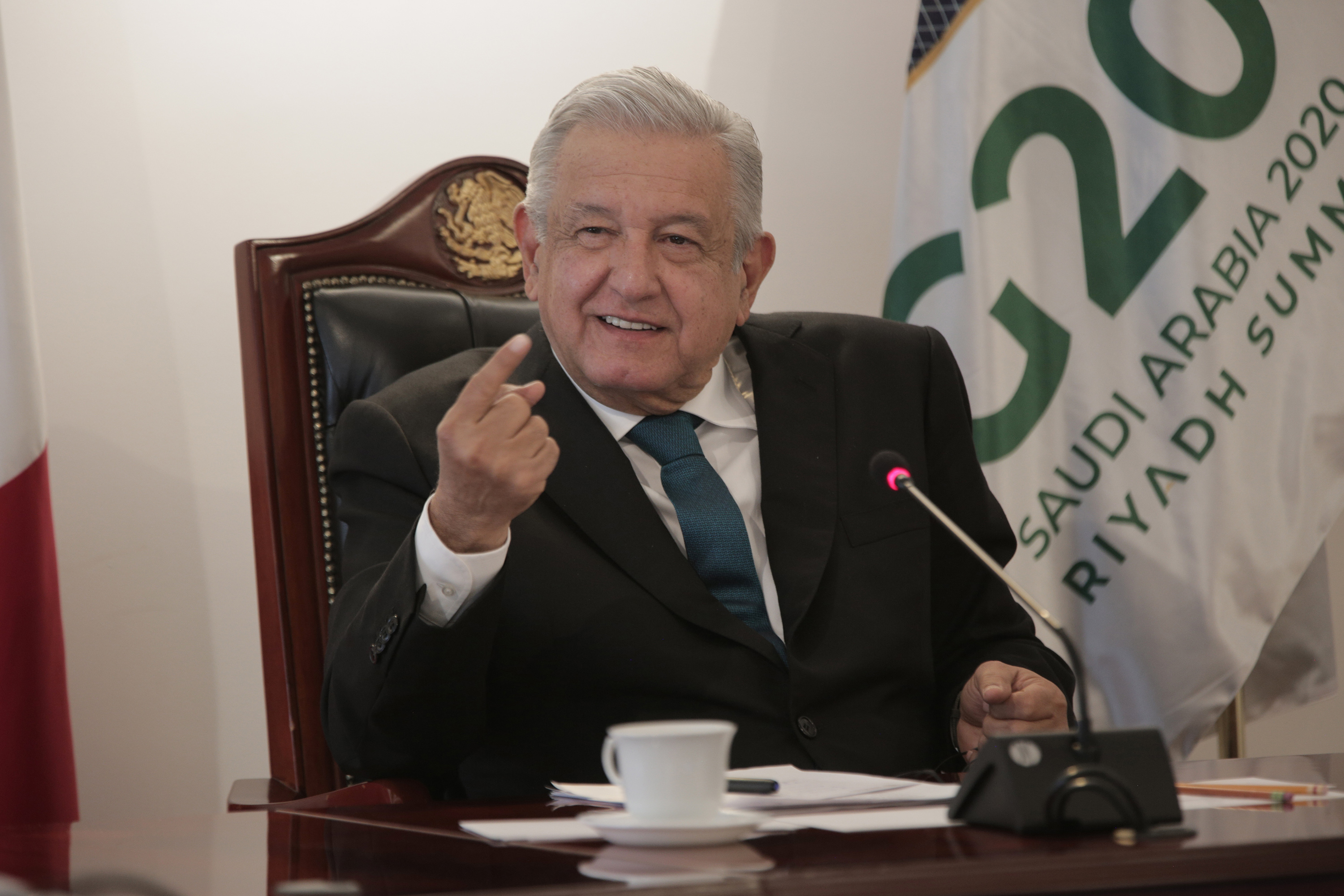Your Majesty and Prime Minister of Saudi Arabia, dear leaders of the G20, ladies and gentlemen:
Facing the economic crisis has been less painful and complex than fighting the COVID-19 pandemic. It was useful for us to abandon the economic recipes applied during the neoliberal period, starting by discarding the strategy of indebting people to rescue those from above. Now it was different.
Because of our austerity measures and our fight against corruption, it was not necessary to resort to new loans and all the resources were allocated directly, without intermediaries, to the base of the social pyramid. From there, resources went up to the top. In other words, preference was given to the poor and members of the middle class.
That is why we advanced the payments of pensions for the elderly and people with disabilities; we maintained the delivery of scholarships and supports to farmers and fishermen; and we expanded the credit program for small businesses and to the formal and informal sectors of the economy. In short, the income of the majorities was strengthened to prevent a drop in the consumption of food and other basic necessities.
This strategy coincided with the miracle of an increase in remittances sent from the United States of America by our fellow migrants; remittances sent by our compatriots to their families, which this year, despite the pandemic, will reach a record sum of 40 billion dollars. This money benefits 10 million poor families who are receiving an average of 350 dollars per month.
Proof that popular consumption has not decreased is that, until yesterday, department stores have been selling eight percent more than in the same period last year.
I also state that the forecast we made is being fulfilled. We foresaw that the crisis would behave in a 'V' shape: we would fall to the bottom, as we did in April, but we would come out of the hole, as in fact it has been happening.
The economy begins to grow and, of the million formal jobs lost, 500 thousand have already been recovered. I think that, next March, we will once again achieve the 20 million 500 thousand jobs that the Mexican Institute of Social Security had registered before the pandemic.
Other favorable data. Despite the health crisis, in the two years that we have been in government, our currency has not depreciated and income from the public finances has decreased very little, two percent compared to last year.
However, the economic crisis that was precipitated by the pandemic affected productive activity, causing growth to decline at a rate without precedent in the last 90 years. For this reason, although we did not contract additional debt, the consequent loss of wealth raised our country's public debt, from 44.8 to 51.1 percent of the national Gross Domestic Product.
The same has happened around the world: Debt grew because of the pandemic by an average of 20 percent, and if we fail to address this issue right away, in the future it is going to become another threat to economic stability and social well-being.
In essence, our proposal consists of the following:
One. Make the commitment to remove amounts of debt and the payment of debt service from poor nations of the world a reality.
Two. Guarantee that middle-income countries can have access to credit with interest rates equivalent to those prevailing in developed countries.
I thank all of you for your attention and I am sure that cooperation and mutual aid will enable all nations to overcome this painful period. I hope that we will be able to leave in history an example of how to deal with a global health threat and a serious economic crisis by applying the principle of universal brotherhood.
Thank you.
---
